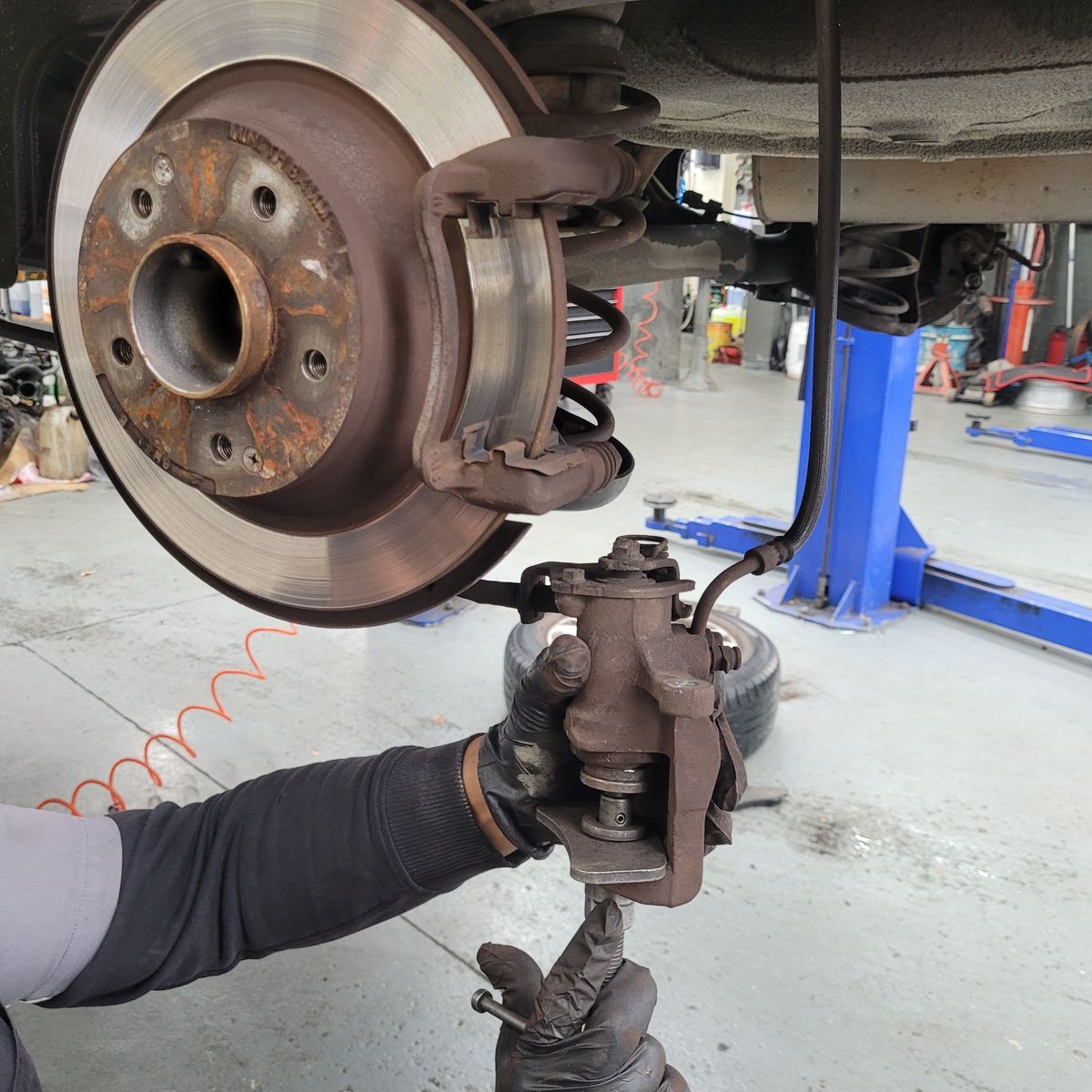If you’ve ever found yourself crawling down Ulster Street in peak hour, or dodging potholes on Mahoe Street in Te Awamutu, you’ll know just how important your brakes are. With all the stop-start traffic, roundabouts in Chartwell, and the random downpours or fog in Hamilton East, your brake system gets a real workout. It doesn’t matter if you’re in a trusty Toyota Aqua, a late-model Hyundai i30, or even a left-field Renault Kadjar—brake problems can sneak up on any Kiwi car.
Let’s chat about what goes on with your brakes and how to spot early warning signs. And just so we’re clear, “brake” is the correct spelling—but plenty of people type “break,” so you might see both here.
What Your Brakes Actually Do
Your brakes aren’t just for stopping at Claudelands traffic lights. They keep you safe when you have to slow for a speed bump outside Hillcrest High or a wayward trolley at The Base. Brakes work by using hydraulic pressure—when you push the pedal, fluid rushes to the calipers and clamps the pads onto the rotor, pulling your car up sharp.
Top Signs Your Brakes Need Attention
Brake Warning Light On
If you spot a brake warning light on your dash, don’t just ignore it hoping it’ll go away after your Thursday shop at Pak’nSave Rototuna. Those warning lights are there for a reason—could be anything from low fluid to a serious system fault. Only exception is if you’ve left your handbrake on (easy done when you’re in a rush).
Squeals, Squeaking or Grinding Sounds
Hear a nasty squeal pulling into Cambridge or a grinding sound heading over Whitiora Bridge? Odds are your brake pads—or shoes on something like a Mazda Demio—are on the way out. Don’t gamble on it, especially if you notice grinding. Sometimes it’s just a stone stuck, but if it sounds like metal-on-metal or you feel it through the pedal, get it checked pronto. Catching it early can save your rotors and your wallet.
Wobble or Vibration When Braking
If your steering wheel does the hula on Avalon Drive when you hit the brakes, it’s usually down to warped rotors or uneven wear. Seen it heaps on Honda CR-Vs, especially with all the potholes around Ngaruawahia. Could also be rust on the brake discs, sticky calipers, or a bumpy feeling from dodgy wheel nuts after a DIY tyre change.
Leaking Fluid
Spotting a puddle on your driveway in Morrinsville? Brake fluid’s clear, a bit oily, and if your reservoir under the hood’s low, you’ve probably got a leak. Could be from leaky brake lines, worn pads, sticky calipers, or even a crook master cylinder. Whatever it is, don’t risk it. Brake fluid’s what makes your system work—no fluid, no brakes.
Spongy or Soft Brake Pedal
If your brake pedal feels soft as an old sponge, or nearly sinks to the floor on SH3, could be air in the system, moisture, or a failing master cylinder. Saw this with a Fiat 500 last week—sorted it with a good system bleed and new seals. If it happens to you, best not to drive until it’s fixed.
Pulling to One Side When Braking
If your Suzuki Swift keeps pulling left on Wairere Drive when you brake, it could be a dodgy hose, stuck caliper, leaking wheel cylinder, or sticky pad. Other reasons are listed here. Either way, your stopping power’s uneven—always best to get checked before it gets worse.
Bouncing or Rocking When You Stop
Sometimes, the issue isn’t brakes but the shocks—especially on NZ’s rough city roads. If your car bounces to a halt at the Chartwell lights, your shock absorbers might be to blame. We see it all the time on ageing Nissan Notes or Honda Fits.
Brake Repairs & Services in Hamilton
Bottom line—if your brakes look, sound, or feel off, get in touch. We see every kind of car in Hamilton—European, hybrid, Asian models, you name it, and it’s always cheaper and safer to fix brake trouble early. Plus, brakes are part of your WOF, so you won’t breeze through your next WOF Hamilton if there’s a problem.
Book your brake service or replacement at Grimmer Motors. Our technicians check, explain, and sort it—so you’re safe on NZ roads, whether you’re heading out to Raglan or just popping down to Frankton.

